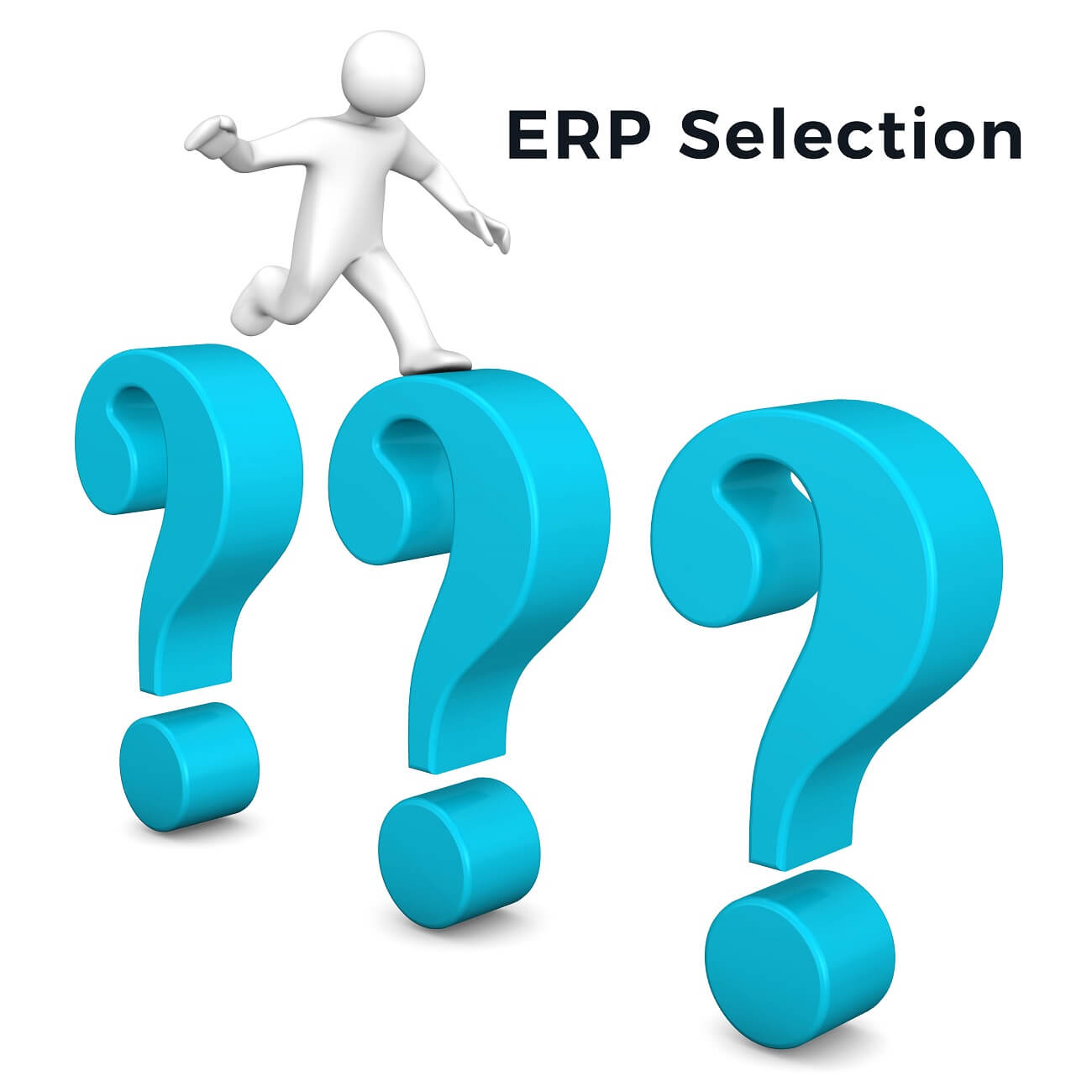
3 Questions to Ask Yourself Before Selecting Enterprise Software
Enterprise resource planning software (ERP) is no longer just for big business. That’s why nearly half of all companies around the globe are either planning or already launched an ERP system acquisition or upgrade, according to Allied Market Research. By 2020, the ERP software market is expected to reach $41.69 Billion globally.
As such, it isn’t surprising that your organization might be considering an ERP system. An ERP system’s ability to manage a business’s internal and external resources in a fully integrated fashion allows it to deliver countless benefits across an organization. A few of those benefits include:
- Decreased order-to-cash cycle
- Integrated system architecture across multiple geographies
- Increased productivity
- Improved business processes
- Enhanced company data accessibility
Not all ERP system rollouts go as planned, though. Research firm, Gartner, estimates that between 55 percent and 75 percent of all ERP projects fail. This comes from many causes, including missed schedules, budgets that are exceeded, and results that don’t meet expectations.
The reason for these failures often is a single cause: Top managers don’t fully comprehend the reasons, goals, roadmap and requirements for successful ERP implementation.
Long before selecting an ERP product or vendor, an organization must engage in a significant amount of planning and preparation. Your approach to planning should begin by asking yourself the following three questions.
1. Why Do you Want to Implement ERP?
It’s not enough to want the aforementioned benefits that come with successful ERP implementation. Because an ERP system will touch and integrate every aspect of your business operations, you should first analyze your internal processes from the top to bottom and across every department.
Speak with your CEO, VPs and all key stakeholders to discuss and define your critical processes. Also document how those processes ought to work, what your business objectives are as it relates to each process, and how you want to see those processes improve. This analysis will help you to understand the value that ERP can play, and what you’ll ultimately need from the system you choose.
As you complete this analysis, you should produce detailed quantitative requirements that will be incorporated into the business case for your planning.
2. What is Your Business Case and Expected ROI?
As you build a comprehensive report of your operations and challenges for your business case, remember that details matter. Your planning should review and capture the operational flow of each of your business segments and detail a complete listing of critical improvements needed for such operational components as:
- Inventory and accounting
- Vendor and customer relations management
- Material costs and waste
- Reporting and sales analysis
- Order turnaround
- Data security, accessibility, and accuracy
- And many more
This exercise will also allow you to assess the advantages, costs and risks of your ERP investment—all of which must be considered to determine your expected ROI and deliver an accurate budget estimate.
Keep in mind that the cost of ERP implementation goes beyond acquisition to include upgrades, customizations, IT expenses, licensing requirements, and on-premise or Software-as-a-service deployment.
Also remember to evaluate what effects the new system will have on products, employees, and customers. For example, your workforce won’t learn how to operate the new system by osmosis; training will be required. Initially your IT resources will be tapped more than usual, as everyone becomes acclimated to any process or system change. A formal change management process also probably will be needed.
3. What are Your Business Requirements?
No ERP solution is going to be a precise fit for your organization without some level of customization. That’s why it’s important to thoroughly answer the first two questions. Otherwise you won’t know what products most closely match your company’s needs, nor will you understand what customizations are still required.
While evaluating ERP options, of course budget will be a big factor in addition to implementation timeframe, training needs, scalability and the level of customer service you can expect.
If you’re not equipped with specifics on what your business needs, then every ERP solution will sound like it’s the right fit. The more data-based, quantitative details you provide in your planning, the more products you’ll be able to eliminate in order to arrive at your best possible match.
ERP Selection Takes Time
It can’t be stressed enough how important it is to do your homework upfront before shopping and selecting an ERP solution. By taking the necessary steps to fully understand your reasons for ERP implementation, your individual business case, and your specific requirements, you will be able to accomplish what so many other organizations don’t: You’ll be among the 25 percent that enjoy ERP implementation success the first time around.
For more guidance on performing your company’s internal assessment, check out Navigator’s ERP evaluation worksheet. In it, you’ll find more detail on the considerations you should make prior to selecting and implementing an ERP system.
Six Keys When Preparing for an ERP Project

